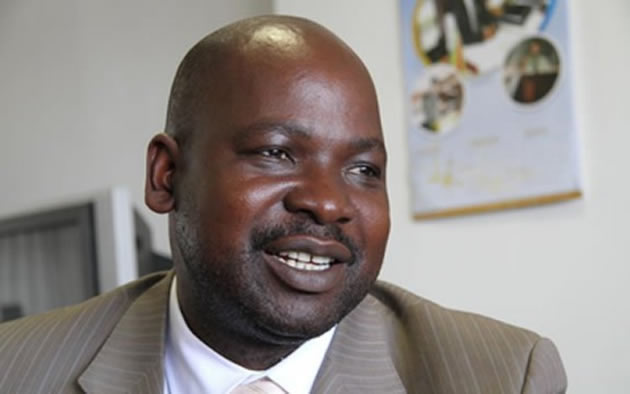Tomana’s remarks and paedophilia risks

Simbiso Marimbe Correspondent
Girls who began sexual activity at age 13 are twice as likely to become infected by an STI as girls who started sexual activity at age 21. Women who begin sexual activity at an early age are far more likely to become pregnant and give birth out-of-wedlock.
It is forgiveable to equate Zimbabwe’s Prosecutor-General Johannes Tomana’s suggestions that 12-year-olds can consent to sex and marriage to the reckless statements by Zulu King Goodwills Zwelithini’s incendiary remarks about foreigners, which many people blame for the spate of xenophobia in South Africa recently.
In our case, Tomana’s unfortunate ‘view’ or lack of alternative views, may as well result in exacerbated paedophilia.
The view that 12-year-olds can consent to sex and marriage under whatever socio-economic circumstances is perilous and must be condemned to the incinerator and never to be heard of again.
It has been difficult to ignore the disastrous statements attributed to Mr Tomana on June 17 2015 because for starters, just like King Zwelithini, he holds a senior position in government and in society.
His utterances were widely publicised in the media. I would like to agree with Professor Jonathan Moyo that his view is “depraved and corrupt”
Whilst Zwelithini’s sentiments were quoted from a prepared speech, and Mr Tomana’s sentiments are said to be an expression of personal opinion, both are equally flawed. Whether Tomana was expressing his personal opinion or interpreting the law is neither here nor there.
It is simply out of order to consider or suggest that minors can consent to sex, simply because they have dropped out of school, more so if it is coming from someone charged with the responsibility of protecting citizens within the law.
A video documentary recently produced by Konrad Adeneur Foundation (KAF) indicates that Musasa Project is daily handling numerous cases of girl children that are sexually abused, impregnated and infected with sexually transmitted infections, including HIV/AIDS.
According to Musasa Project, most of these children are not fully developed biologically to give birth naturally, so they have to give birth through the Caesarean section method.
It boggles the mind that Mr Tomana’s alleged statements seem to display complete ignorance of the serious reproductive and psychological health implications that early sexual debut has on minors.
A whole body of research exists pointing to that fact. UNFPA, UNICEF, and other research institutions have shown that adolescent sexual activity causes psychological harm such as depression and negative psychological behaviour.
This has been used as one key rationale for many countries’, including Zimbabwe’s, reproductive health policies and legal age of marriage laws. Advocates of abstinence-only policies cite research which has found that, compared with abstainers, adolescents who have experienced sexual debut are more likely to use substances, have lower academic achievement and aspirations, and experience poorer mental health, according to researchers such as Landale, Grady Burge and others.
It is rather odd that whilst the world is awash with research that shows the negative effect of early marriages, anyone can even hold a personal opinion that children aged as young as 12 can consent to sex.
Consenting to sex at that age means that one is consenting to the many adverse effects.
Research has concluded that the earlier a woman begins sexual activity, the more sexual partners she is likely to have during her lifetime. Women who begin sexual activity at early ages also have far higher turnover rates among sexual partners. Women who become sexually active at ages 13-14 have a sex partner turnover rate that is four times higher than the rate found among those who initiate sex activity in their early 20s.
Beginning sexual activity at an early age is likely to have permanent negative consequences on the lives of young women. These enduring negative effects can be physical, psychological, social, and economic.
The harmful effects are most pronounced for women who begin sexual activity in teen years. Data from the American National Survey of Family Growth, of 1995 shows that beginning sexual activity at a young age greatly increases the probability of becoming infected with sexually transmitted infections(STIs).
Girls who began sexual activity at age 13 are twice as likely to become infected by an STI as girls who started sexual activity at age 21. Women who begin sexual activity at an early age are far more likely to become pregnant and give birth out-of-wedlock. Nearly 40 percent of girls who commence sexual activity at ages 13 or 14 will give birth outside marriage.
By contrast, nine percent of women who begin sexual activity at ages 21 or 22 will give birth outside marriage. Women who begin sexual activity at earlier ages are more likely to become single mothers.
Women who became sexually active at ages 13 or 14 are more than three times as likely to become single parents than are women who commence sexual activity in their early 20s. This data clearly shows that early sexual activity seriously undermines girls’ ability to form stable marriages as adults.
Early sexual activity is also linked to higher levels of child and maternal poverty, according to the American survey. Girls who begin sexual activity at an earlier age are far more likely to have abortions. Nearly 30 percent of girls who started sexual activity at ages 13 or 14 have had an abortion.
The UNFPA reports that child marriages directly threaten health and well-being with complications from pregnancy and childbirth together being the main causes of death among adolescent girls 15-19 in developing countries.
One really wonders what could motivate statements such as those attributed to Mr Tomana because the evidence that early sex or child marriages have devastating — even life-threatening — consequences abounds.
It is not rocket science that at the age of 12 many girls, for example, may have little understanding of or exposure to other life options. They may “willingly” accept marriage as their chosen fate but beyond the immediate implications, child marriages deny girls the opportunity to fully develop their potential as healthy, productive and empowered citizens.
Child marriages rob both girls and boys of their girlhood and boyhood, entrenching them and their future families in poverty, limiting their life choices, and generating high development costs for communities.
A recent analysis of the world’s marriage patterns showed that although child marriage persists, the minimum legal age for marriage without parental consent is 18 years in most countries.
Families and girls themselves may simply not know that laws against child marriage exist, and enforcement of such laws is often lax.
To all who care, Zimbabwe is signatory to the Convention on the Rights of the Child (CRC) that sets out sets out the human rights of children including the right to survive; the right to develop to their fullest; the right to protection from harmful practices, abuse and exploitation, and the right to participate fully in family, cultural and social life.
If indeed Mr Tomana suggested that 12-year-olds can consent to sex, I am tempted to question which religious sect he belongs to or whether or not he went to the same school as King Zwelithini.
Simbiso is a Media, Gender, Rights, Communication and Development Consultant







Comments